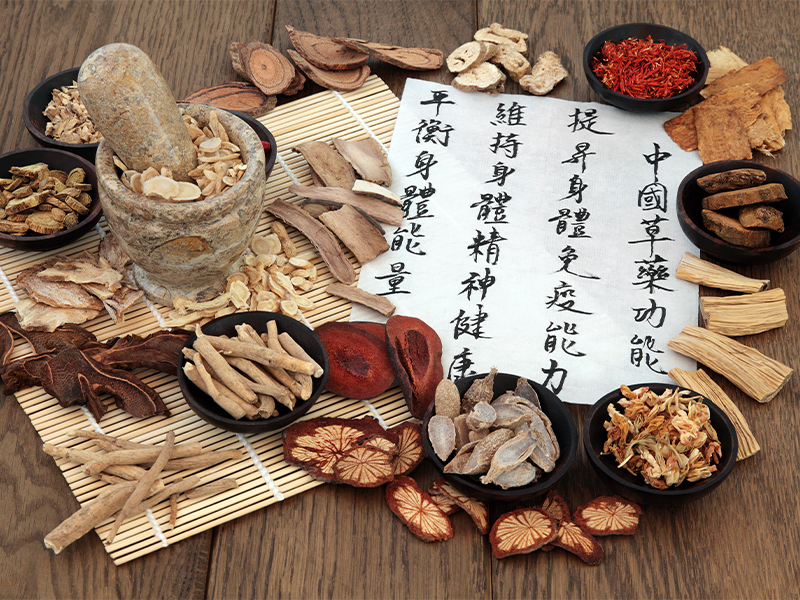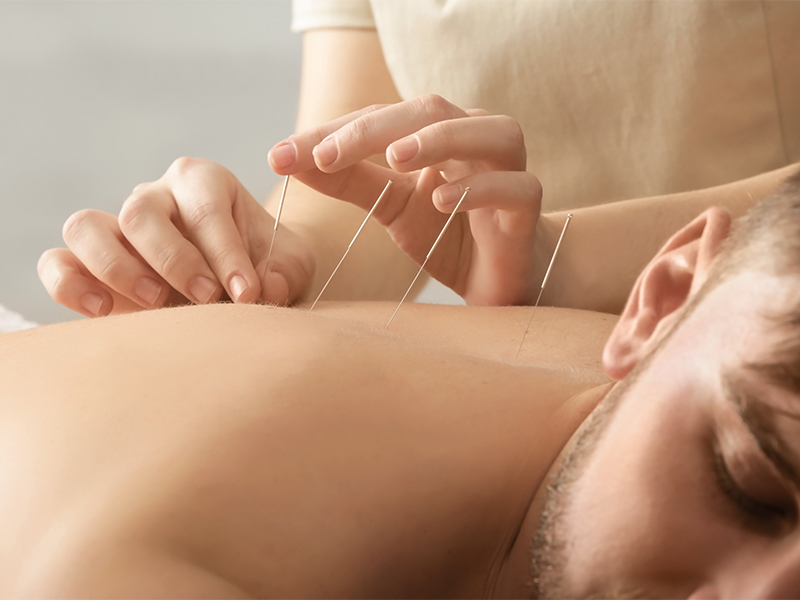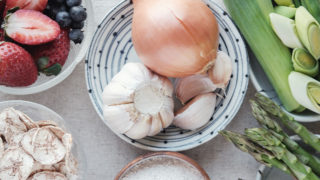From acupuncture to herbal medicine, Traditional Chinese Medicine (TCM) can offer loads of health benefits. If you’re looking to take a more holistic approach to your health in 2023, here’s why you’ll want to consider adding Chinese medicine and natural healing remedies to your routine.
What is Traditional Chinese Medicine?
TCM is an ancient form of Eastern medicine that dates back thousands of years. Whereas Western medicine is mainly focused on identifying the cause of an ailment and using medication to alleviate the current symptoms, Chinese medicine is more concerned with enhancing the body’s natural defences to prevent disease from reoccurring.

An East-West approach
Mainstream Western medicine clearly has its advantages, with surgeries and medications to help reduce symptoms and save lives. Yet alternative medicine like TCM certainly has a place in the healthcare system, too. There is growing evidence to support the effectiveness and safety of TCM use with mainstream treatment.
In fact, more Western physicians over the past several decades have adopted Eastern practices to provide their patients with a “best of both worlds” approach. This concept of synergising the two traditions is called integrative medicine. It includes conventional drugs and surgery alongside complementary therapies with the aim of providing the best possible patient outcomes. For example, a migraine sufferer might require pain medication for immediate symptom relief but find that the frequency of chronic headaches can be reduced with regular TCM treatment.
One Wellness Medical is a holistic healthcare practice in Singapore that provides its patients with this type of integrative care. It offers preventative and family medicine augmented with TCM herbal medicine, acupuncture, cupping therapy and other ancient healing practices.
Here are three reasons to complement your Western healthcare with TCM in Singapore, according to One Wellness Medical.
#1 TCM encompasses holistic care for the individual
PEH WEI JIE is a physician at One Wellness Medical. He says that while Western medicine focuses on treating the specific ailment, TCM looks at the body holistically, emphasising energy and balance.
“TCM treatment strives to attain a balance between one’s health and disease. To calibrate any imbalances within the body, a personalised treatment plan is formulated for the individual.”
This can be in the form of herbal medicine or acupuncture, which uses hair-thin needles to stimulate specific areas of the skin, known as acupoints. It can even be in the form of food therapy or lifestyle changes to improve one’s symptoms and reduce future recurrences of diseases.
Exercises such as tai chi are also incorporated to improve breathing techniques and regulate emotions. This is important, he says, as emotions like anger, depression and anxiety can lead to ailments when unchecked.
“By considering all of these aspects, the recovery of an individual can be swifter and also provide substantial preventive care.”

#2 TCM utilises natural remedies in its treatment
As a natural healing modality, TCM does not use conventional drugs. Instead, it includes natural treatments such as acupuncture, herbal remedies, dietary advice and exercise to improve symptoms and clear the root cause of the disease.
But, don’t mistake natural for not as effective, says Peh – quite the contrary. “TCM herbs, for instance, have multiple functions and can be effective for almost all conditions when diagnosed and chosen in an accurate manner. A formulary can be devised for the individual to improve his or her symptoms, reduce side effects and boost energy. This can improve their recovery process and quality of life in the long run,” he says. “This goes for even the most complex conditions.”
Also, because herbal medications are natural and mostly plant-based, they leave “little to no traces and side effects in the body after consumption.”
That said, it might be worth exploring TCM as the first line of treatment in certain non life-threatening cases. For example, a patient with insomnia might consider acupuncture and herbal medicine to promote deep relaxation before opting for prescription sleep aids.
As with any kind of medicine, TCM herbal medication is “a personalised and precision-based medication,” says Peh. “It must be tailored to an individual’s symptoms and needs.” That’s why it’s important to seek a licensed certified TCM practitioner for a detailed diagnosis.
#3 Acupuncture is a natural way to relieve many types of pain
Acupuncture treatment is widely known for its effectiveness in both chronic and acute pain relief. This includes everything from back, neck, knee and shoulder pain to headaches, menstrual cramps and even side effects from chemotherapy.
For many patients, acupuncture treatment has “proven effective in relieving all kinds of ailments and pain syndromes, proving to be a sustainable and effective alternative to pain relievers or external applications.” In fact, Peh says that many patients with lower back pain, osteoarthritis, menstrual cramps, tennis elbow, fibromyalgia and other pain syndromes report improved relief with acupuncture, in conjunction with anti-inflammatory and preventive Western medications. He adds that acupuncture needles can also stimulate the production of endorphins, which helps relieve pain.
To discover more benefits of holistic Western medicine and TCM integrations, visit onewellnessmedical.com.
One Wellness Medical
CBD: #03-14 SBF Medical Suites, 160 Robinson Road | 6904 1671
East Coast: #04-19 i12 Katong Mall, 112 East Coast Road | 6568 0320
FB/IG @OneWellnessMedical
This article first appeared in the January 2023 edition of Expat Living. You can purchase the latest issue or subscribe, so you never miss a copy!
To make the most of living in Singapore, read our latest City Guide here for free!



